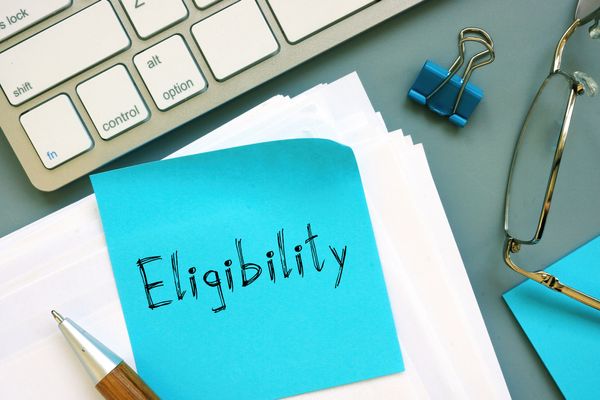Investing in real estate can be a highly lucrative business venture that comes with significant risks. Bad deals, bad contracts, lawsuits, and other unforeseen circumstances that can be detrimental to your investment are often one or two easily avoided missteps away.
One of the best ways to protect yourself against legal or financial trouble when it comes to real estate investing is to become educated about real estate asset protection strategies before you invest. Fortunately, there is a wealth of information on the subject at your disposal if you know where to look.
The only problem is that real estate asset protection can be a complex and confusing topic for newcomers. To remedy that, here are a few easy tips and tricks for real estate asset protection to help you build a foundation of knowledge so that you can avoid disaster and ensure your investments are worthwhile.
8 Tips and Tricks for Real Estate Asset Protection
1. Insure Yourself
It goes without saying that you should always have the proper insurance when it comes to your real estate investments, but it should also be noted that you need to take a magnifying glass to your policy before you commit to anything.
It’s always helpful to seek the guidance of an insurance professional when dealing with matters as complex as insurance policies. Reach out to one and have them go over the details with you so that you know what you’re getting into before things have a chance to unravel.
2. Form an LLC
Forming a limited liability company for your real estate investments is a way to separate your business assets from your personal assets. This makes it so any legal or financial issues that may arise surrounding your real estate assets will fall onto the LLC – not you personally. By doing this, you can protect your personal assets from seizure in order to pay off debts associated with your LLC.
Lawsuits are not uncommon in the realm of real estate investment and a judgement against you could result in financial ramifications. Plus, it can also damage your credit score and make it hard to qualify for loans or credit in the future. Forming an LLC is an absolute must when seeking to protect your real estate assets.
3. Make Sure the Contract Favors You
Sometimes your worst nightmare is written right there in the fine print. A contract that doesn’t account for any and all problems that may arise is liable to cause you serious legal or financial issues somewhere down the road. Be sure that your expectations are explicitly detailed in the contract so that nothing is left to interpretation should it find itself under the scrutiny of a court.
4. Be Aware of the Advantages of Joint Tenancy
If you and your spouse are investing in a new home, you can protect your assets by including both of your names on the title. This is what’s known as joint tenancy.
The advantage of joint tenancy is that, should you or your spouse come into any kind of financial trouble, your house cannot be seized by creditors as a means of paying off the debt.
It should be noted that there are states in which this does not apply. The laws for titling exemptions vary across the country, so you should check the provisions in your state before assuming your investment is secure.
5. Consider the Risk-Reward Ratio
There is no worthwhile investment that doesn’t come with considerable risk. The question is: is the potential payout worth the risk?
Ask yourself this question more than once before you ink your name on any dotted lines. It’s not an easy one to answer, of course, and you’ll likely never be entirely certain no matter how great the opportunity may seem. However, there are a few things you can do to ensure you’re as protected as possible as we have mentioned above.
6. Do the Math
How much do you stand to make and how much do you stand to lose?
If you’re certain you can live with the loss, go for the investment. Of course, you won’t always be certain what the potential losses might look like, but a few calculations of the expected return on investment can go a long way.
7. Consult a Real Estate Asset Protection Lawyer
A legal professional can foresee potential risks that you most likely cannot.
Team up with a real estate asset protection lawyer to form an asset protection plan that you can feel confident moving forward with.
8. Read the Fine Print
Never sign any contract without going over it with a fine-toothed comb more than once.
This is something an asset protection lawyer can help you with. A full understanding of the deal can greatly reduce the chance of you signing up for something you’re not equipped to handle.
Conclusion
It is of paramount importance that real estate investors actively protect their investment properties. Having a well-thought-out asset protection strategy in place can make the difference between preserving your personal and business assets or risking substantial loss. By employing tactics such as equity stripping and utilizing the structure of a limited liability company (LLC), investors can ensure the safeguarding of their valuable holdings.
It's important to remember, however, that protecting real estate assets is not just about keeping only the assets safe. It's also about establishing a strong partnership with a reliable insurance company that understands the specific challenges and needs of a real estate investor. This partnership can provide an additional safety net and reassurance.
Ultimately, asset protection planning is an ongoing process and not a one-time action. It requires due diligence, regular reviews, and updates to adapt to changing laws and personal circumstances. By taking these steps, you are not only protecting your real estate holdings, but also ensuring real estate preservation for future generations. Careful planning and implementation of these tips and tricks can secure your investment property portfolio and ensure a thriving future in the realm of real estate investments.






